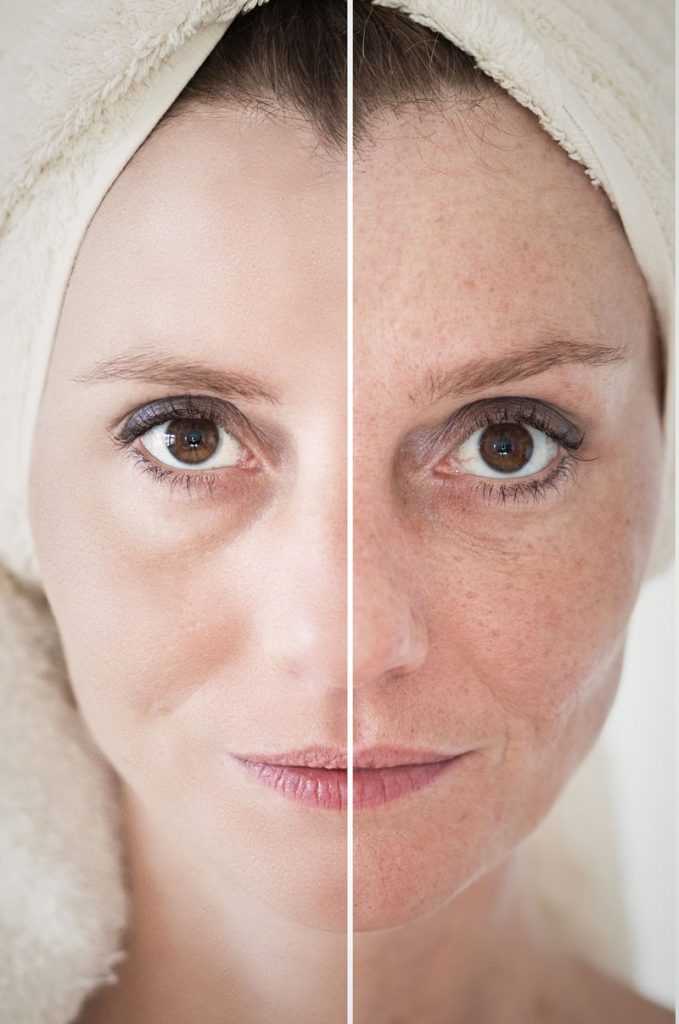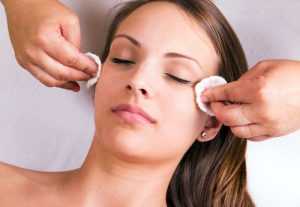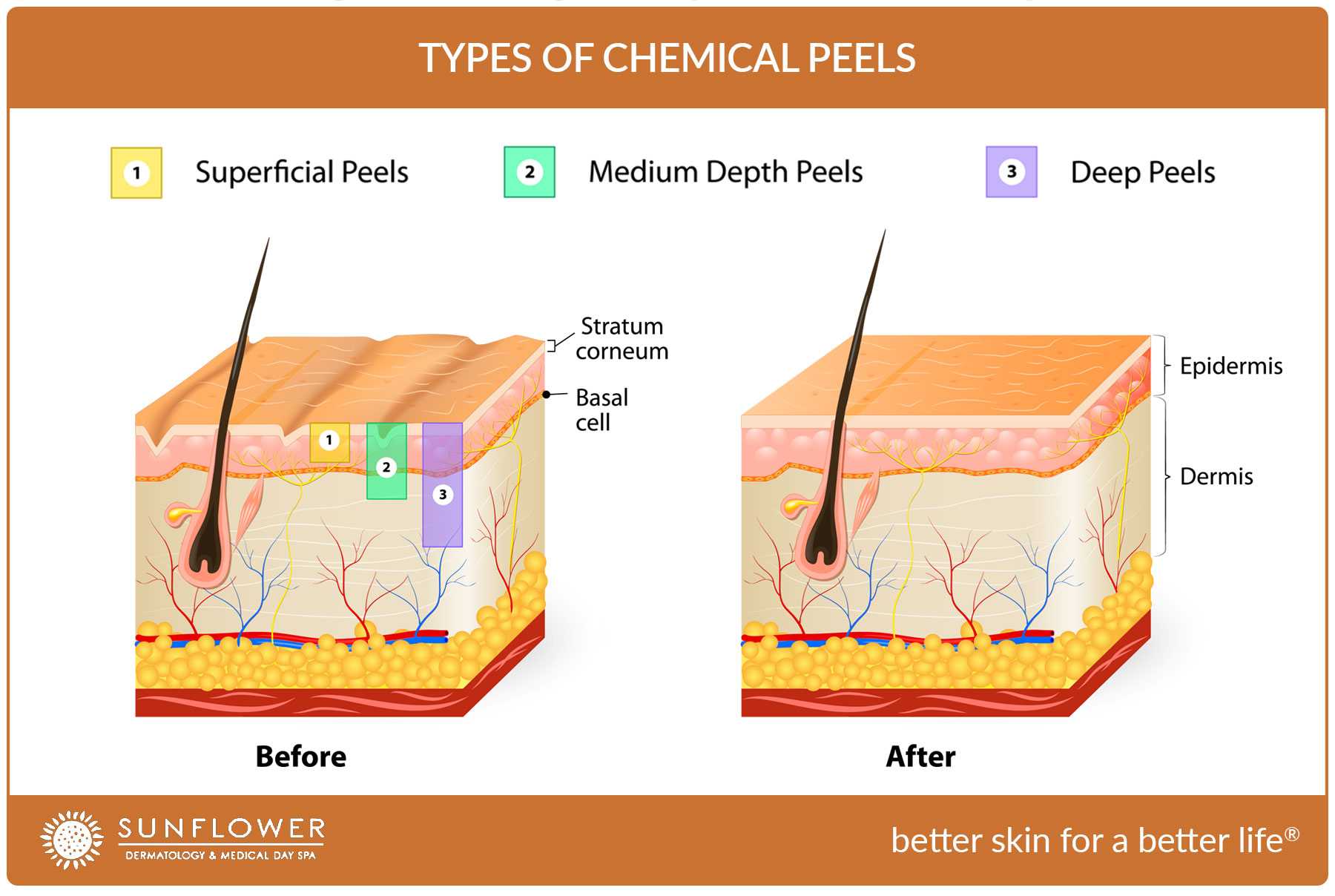What is a Chemical Peel?
Chemical Peels are one of the oldest cosmetic procedures in the world. In ancient Rome, Greece, and Egypt they were utilized to help people attain smoother, more luxurious skin. Today, chemical peels are among one of the most popular aesthetic treatments for revitalizing the skin.
A Chemical Peel is an acidic exfoliate which is applied directly to the skin area that needs treatment. These solutions cause mild to moderate peeling of the skin’s outermost layers. This promotes the growth of collagen in the dermis layer of the skin, a protein that helps the skin remain toned and supple. After the old skin peels away, new skin regenerates with a healthier, smoother and more evenly toned texture.
Jenny the aesthetician at Epiphany Dermatology demonstrates a chemical peel.
This procedure takes about 20 minutes to complete, however this video has been shortened.
What Types of Skin Conditions Do Chemical Peels Treat?
Chemical Peels are very effective for smoothing and rejuvenating the skin. Epiphany Dermatology offers several types of chemical peels to treat a multitude of skin concerns,
these include:
- Acne
- Fine Lines
- Crow’s Feet
- Blemishes
- Hyperpigmentation
- Melasma (patchy facial skin discoloration)
- Scars
- Brown Spots
- Sagging Skin
- Wrinkles
How Many Chemical Peels are Needed to See Visible Results?
Taking the individual patient’s needs into account, Epiphany Dermatology Aestheticians will evaluate skin type, skin conditions, and then match the patient with the appropriate chemical peel treatment.
The Phased Treatment Approach:
Phase One Chemical Peel: A Phase One treatment is ideal for a patient’s first peel, or for patients with sensitive skin. This treatment combats acne and skin congestion (clogged pores), reduces fine lines and wrinkles, and diminishes hyperpigmentation. Once patients finish an initial Phase One treatment, our aestheticians will evaluate and advise as to whether a Phase Two treatment is needed.
Phase Two Chemical Peels: Phase Two peels involve deeper, more intensive treatment(s) to address skin issues that need additional attention. Epiphany Dermatology recommends, for patients with more complicated skin issues, that they undergo a series of 5 chemical peels at various strengths/percentages to achieve ideal results.
Epiphany Dermatology provides all our patients with before and after pictures to track their results.
What are the Different Types of Chemical Peels?
Jessner Peel
This blend of alpha hydroxy acids is extremely effective in repairing sun damage. It also helps improve skin texture, tone, and contributes to a more radiant, beautiful glow. Epiphany Dermatology offers individual vitalizing peels. For best results, we advise a series of 3 treatments.
*Patients who choose the series option save $90.
Skinceuticals®
This Advanced Corrective Peel is a modified Jessner peel that uses a blend of chemical grade acids that are very effective for helping the skin achieve a bright and radiant texture. In as little as one week our patients’ complexion will look clearer and more evenly toned.
Ultra Peel
This peel consists of a microdermabrasion treatment, which removes superficial dead skin cells from the surface. It is followed by a chemical peel, which leads to considerable results and less skin peeling post treatment.
Dr. Brian Matthys discusses the benefits of Microdermabrasion and Chemical Peels
Schedule Your Chemical Peel Treatments at Epiphany Dermatology – Kansas City
Kansas City Chemical Peel Treatments are performed by Licensed Aesthetician Bailey Kopp at our Riverside Location.
Make an appointment today!
Call: (816) 205-8120
REQUEST APPOINTMENT ONLINE
Locations
1805 NW Platte Rd., Suite 120
Riverside, MO 64150 | Riverside Directions
805 N 36th St., Suite D
St. Joseph, MO 64506 | St. Joseph Directions




